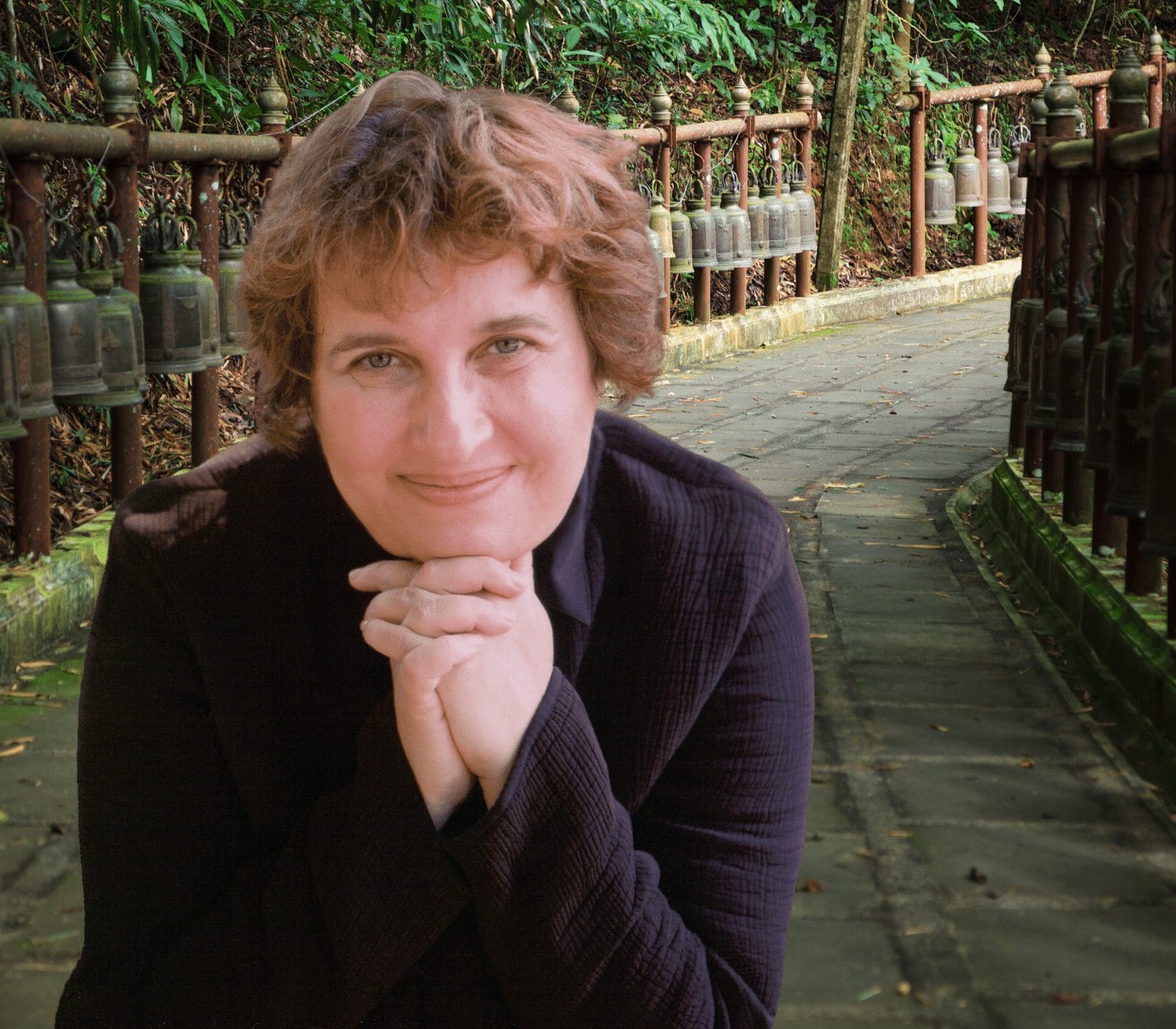Sharon Salzberg: Real Happiness

Sharon Salzberg is a pioneer in the field of Meditation, a world-renowned teacher and the New York Times bestselling author of Real Happiness. She has played a pivotal role in bringing meditation and mindfulness into mainstream American culture since 1974.
Unveiling the Secret of Real Happiness With Sharon Salzberg
Interview by Liane Buck

Sharon Salzberg is co-founder of the Insight Meditation Society in Barre, MA, and has authored ten books, including the New York Times bestseller, Real Happiness, her seminal work, Lovingkindness and her 2017 release, Real Love: The Art of Mindful Connection. Acclaimed for her down-to-earth and relatable teaching style, Sharon offers a secular, modern approach to Buddhist teachings, making them instantly accessible. Her writing can be found on Medium, On Being, the Maria Shriver blog, and Huffington Post. Sharon is also the host of her podcast, The Metta Hour, with 100+ episodes featuring interviews with the top leaders and voices in the Meditation and mindfulness movement.
OMTimes: What is the role our life experience plays when one is trying to learn how to meditate?
Sharon Salzberg: On the positive side, we may have learned about impermanence and letting go just from life! On the more negative side, maybe we’re used to powering through challenges with a lot of self-judgment and force, self-compassion works a lot better in Meditation than harsh self-judgment. It works a lot better in life too, but a lot of times we don’t know that.
OMTimes: would you call yourself a Fearless Person?
Sharon Salzberg: I certainly experience fear, but what is also true is that I experience fear very differently from how I used to before I started meditating. Cultivating the quality of mindfulness allows us to be with feelings and neither get overwhelmed or defined by them nor ad shame and resistance or denial. Sometimes we say mindfulness is the place in the middle, between being swamped and pushing away that has helped me a lot in facing my fear. Now it doesn’t drive me.
OMTimes: Would you say that Meditation is a common ground to all the Spiritual and Mystical Practices?
Sharon Salzberg: I think the realization is common to all traditions: not just admiring the work or freedom of another, even a figure like the Buddha, but dealing with the experiences of one’s own mind and body. That’s the point. In many traditions, and indeed, as I studied in the Buddhist tradition, Meditation is a big part of that.
OMTimes: How can a Human Being (a Seeker) develop a heart with no Judgement?
Sharon Salzberg: No judgment doesn’t mean any discernment. No judgment means no holding on to or pushing away our experience so that we can see into it more deeply. This is where clarity comes from and wisdom. We train in that very ability when we train in mindfulness.
OMTimes: The Zen Concept of Bearing Witness is to embrace both Joy and sorrows; it is to be one with suffering we may encounter without Judgement. In doing such, we actively contribute to the healing of the situation inside of oneself. How does one conciliate action and non-action in the Practice to Bear Witness? How can Meditation enhance this approach?
Sharon Salzberg: We start by bearing witness, but that doesn’t mean we never take action. It means we’re not driven into action by habits of avoidance or grasping. Space opens up from bearing witness, and in that space, we might see options for action we never saw before. This is what meditation training is all about.
OMTimes: What are the Precepts?
Sharon Salzberg: There are five precepts in the Buddhist tradition that guide our ethical conduct, out of compassion for ourselves and others. They are: undertaking the precept –
1) not to kill (or stated positively, to develop a reverence for life).
2) not to steal, (or taking only that which has been offered).
3) not to commit sexual misconduct, refraining from using one’s sexual energy in ways that are exploitative or harmful to someone else or ourselves.
4) not lying (or only saying that which is both accurate and useful.
5) refraining from taking intoxicants that cloud the mind or cause heedlessness.
OMTimes: what assistance may a meditation practice offer when referring to the Art of Dying?
Sharon Salzberg: Meditation teaches us to let go all of the time: of distractions, ruminating about the past, and the future, of the last moment. It also teaches us to connect to something bigger than time and our physical bodies.
OMTimes: How can Seva change and enhance somebody’s spiritual path? In your opinion, how important is Seva to someone trailing the Path of Self-Realization?
Sharon Salzberg: Seva means service, which is both a path to a liberated mind and an expression of a liberated mind.
When we practice service, we move beyond the narrow confines of self-preoccupation and deepen the qualities of compassion and sympathetic joy (joy in the Happiness of others.) it helps open our hearts and recognize our interconnectedness. All this is very helpful on a spiritual path, and also is a natural expression of a mind that is no longer lost in the sense of a rigid, separate self and is free of greed, hatred, and delusion.
OMTimes: Tell us a bit more about your next creative projects and how people can get follow you and know about your events?
Sharon Salzberg: My website is sharonsalzberg.com. There, one can find programs, writings, books, and recordings.
Real Happiness, 10th Anniversary Edition: A 28-Day Program to Realize the Power of Meditation.
Follow Sharon at Facebook: https://www.facebook.com/SharonSalzberg/
Instagram: https://www.instagram.com/sharonsalzberg/
Twitter: https://twitter.com/sharonsalzberg
Creatrix from Sirius. Fairly Odd Mother of Saints (Bernards). Fish Tank aficionado by day ninja by night. Liane is also the Editor-in-Chief of OMTimes Magazine, Co-Founder of Humanity Healing International and Humanity Healing Network, and a Board Member of Saint Lazarus Relief Fund.





